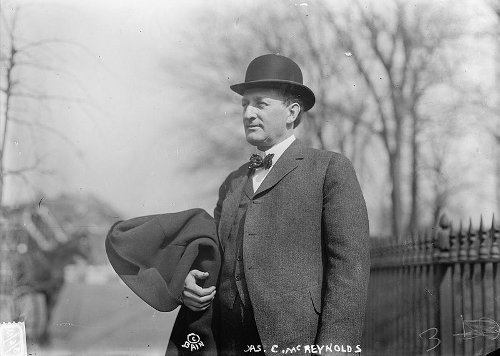
Supreme Court justice James Clark McReynolds (1862-1946) was known as “the rudest man in Washington.” In 27 years on the court, his behavior made this seem an understatement.
In choosing law clerks, McReynolds refused to accept “Jews, drinkers, blacks, women, smokers, married or engaged individuals.” A blatant antisemite, he refused to speak to Louis Brandeis, the court’s first Jewish justice, and in 1924 refused even to sit next to him for the court’s annual photo. After urging Herbert Hoover not to “afflict the Court with another Jew,” he pointedly read a newspaper during Benjamin Cardozo’s swearing-in ceremony. “For four thousand years,” he told Oliver Wendell Holmes, “the Lord tried to make something out of the Hebrews, then gave it up as impossible and turned them out to prey on mankind in general — like fleas on the dog, for example.”
McReynolds’ intolerance extended to everyone around him. When justice Harlan Fiske Stone remarked on the dullness of one attorney’s argument, McReynolds returned, “The only duller thing I can think of is to hear you read one of your opinions.” He objected to women’s wearing red nail polish and men’s wearing wristwatches, and he declared tobacco smoke “personally objectionable.” He once tried to defend his impartiality by saying he tried to protect “the poorest darkie in the Georgia backwoods as well as the man of wealth in a mansion on Fifth Avenue.”
Chief justice William Howard Taft called McReynolds “selfish to the last degree,” “fuller of prejudice than any man I have ever known,” and “one who delights in making others uncomfortable.” Even historians seem to hate him. In his biographical dictionary of the court, Timothy L. Hall calls McReynolds “the most boorish man ever to hold a seat there,” and Rebecca S. Shoemaker calls him “irascible and a racist.” He died alone at 84 — in Hall’s words, “unwept-for and unloved.”
